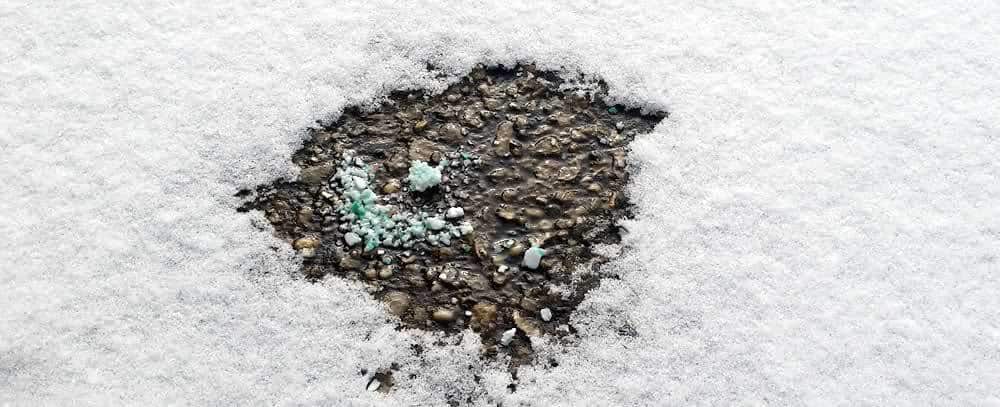Concrete, especially concrete less than a year old, does not respond well to rock salt getting dumped all over it. The truth is, most ice melts react with concrete to some degree, but some ice melts will react less with the concrete. The problem is that salts react with the calcium silicate hydrates in the cement of the concrete.
The best option for concrete is often Calcium Magnesium Acetate (CMA) or Calcium Chloride. CMA is used as a corrosion inhibitor in some ice-melt blends, so no wonder a lot of people choose it when they need something gentler on their concrete.
Calcium Chloride is less caustic on concrete than some of the other ice salts. The benefit of Calcium Chloride is that is helps melt ice at lower temperatures than any other commonly available ice treatment. If it’s really cold, nothing else will cut through the ice like Calcium Chloride.
Some Helpful Advice on Deicers for Concrete
The biggest cost and negative environmental impact from deicers is when people use too much of it. Using the right amount reduces corrosion, reduces salts in our waterways, and obviously reduces your cost because you use less. Please avoid over-salting.
Before you go spend big money on something like pure CMA or Calcium Chloride, most people find rock salt with corrosion inhibitors protect your concrete just fine. Our Safe ‘N Sure has CMA in it to help avoid corrosion as well as Calcium Chloride to make it work at lower temperatures, but it is made primarily from rock salt, which keeps the cost down.
Finally, there are some concrete treatments you can use to strengthen your concrete making it more resistant to corrosion with added options like making your concrete more slip resistant.

